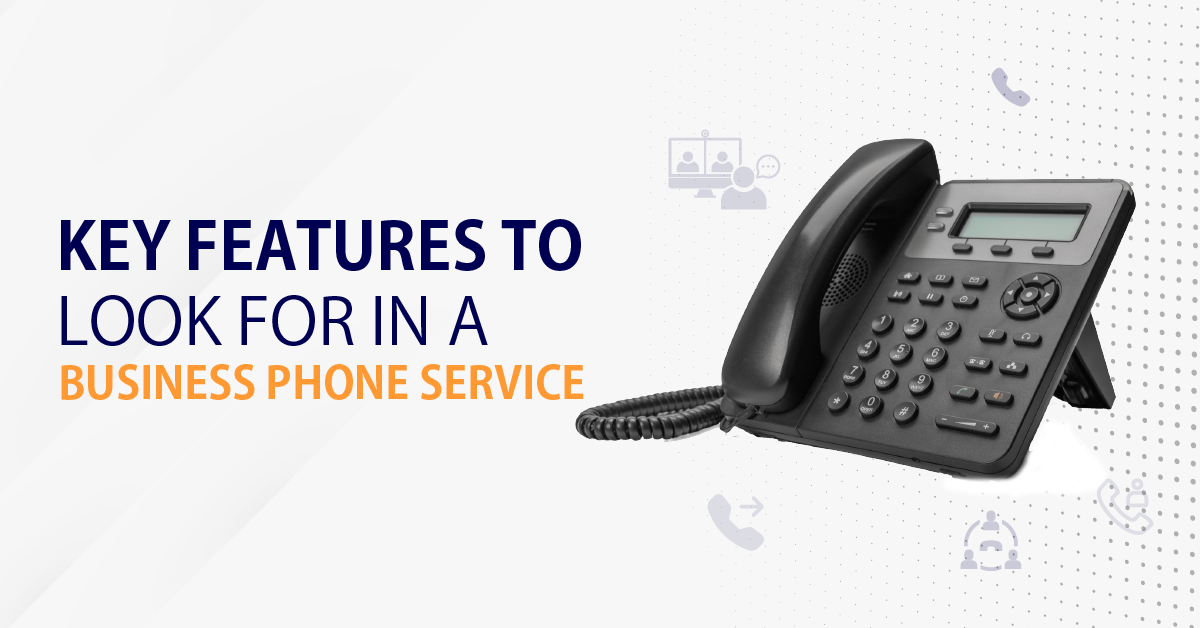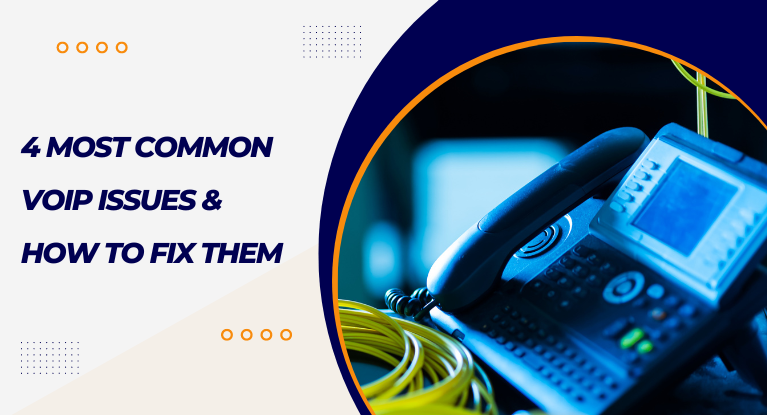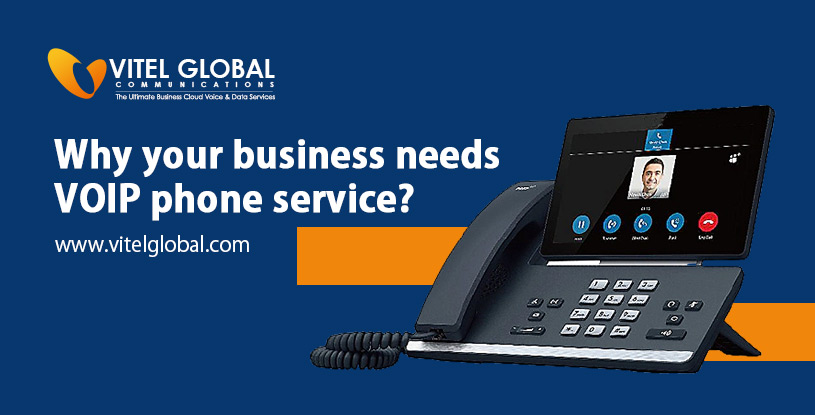Elevating Business Productivity with Advanced VoIP Phone Solutions

4 min read
Staying competitive and efficient is essential for success. One of the key factors influencing business productivity in the modern workplace is effective communication. Traditional phone systems are becoming obsolete, unable to keep up with the demands of a dynamic workforce.
This is where VoIP Phone service for business comes into play, revolutionizing the way businesses communicate internally and externally.
Introduction
VoIP technology leverages the internet to transmit voice data, offering an array of features and benefits not available with traditional landline systems. It converts analog voice signals into digital data packets, allowing for seamless communication over the internet.
Business productivity refers to the efficiency with which a company utilizes its resources to achieve its goals. It encompasses various aspects of operations, including communication, collaboration, and workflow optimization.
Benefits
Cost Savings
VoIP eliminates the requirement for costly hardware and upkeep linked with conventional telephone systems. Calls made through this solutions are significantly cheaper, especially for international calls, leading to substantial cost savings for businesses.
Flexibility and Scalability
Unlike traditional phone systems, which rely on physical lines, VoIP functions through software, providing unmatched flexibility and scalability. Businesses can easily add or remove users, scale up or down according to their needs, without the constraints of hardware limitations.
Integration with Other Tools
Advanced VoIP solutions seamlessly integrate with existing business tools such as email, CRM systems, and productivity software. This integration streamlines workflow processes, enhances collaboration, and boosts overall productivity.
Mobility and Remote Work
With the rise of remote work, mobility has become crucial in business communication services. VoIP solutions enable employees to stay connected from anywhere, using their mobile devices or laptops. This flexibility fosters productivity by ensuring constant communication and accessibility.
VoIP Features
Call Routing and Forwarding
VoIP systems use advanced call routing algorithms to direct incoming calls to the appropriate destination, such as specific extensions, departments, or individuals. This feature helps streamline communication by minimizing call transfers and reducing wait times for callers. For example, calls can be routed based on criteria like time of day, caller ID, or interactive voice response (IVR) menus.
Voicemail to Email Transcription
VoIP solutions transcribe voicemail messages into text format and deliver them directly to users’ email accounts. This feature offers several benefits, including improved accessibility to voicemail messages, enhanced organization of communication channels, and increased efficiency in responding to messages. Users can quickly scan through transcribed voicemails, prioritize responses, and archive important messages for future reference.
Unified communication as a service
UCaaS is a cloud-based communication solution that integrates various communication tools and services into a single platform. UCaaS offers a comprehensive suite of communication and collaboration tools, including voice, video, messaging, and conferencing capabilities. Unified communication as a service (UCaaS) enables users to access these tools from anywhere with an internet connection, providing flexibility and scalability for businesses of all sizes.
Call Analytics and Reporting
VoIP systems provide comprehensive analytics and reporting tools that capture valuable data related to call activity. These insights include metrics such as call volumes, durations, peak hours, and call trends. By analyzing this data, businesses can identify patterns, assess performance, and make informed decisions to optimize communication strategies. For instance, businesses can allocate resources more effectively, adjust staffing levels during peak call times, or refine marketing campaigns based on call response rates.
CRM Integration
Integration with Customer Relationship Management (CRM) software enables VoIP systems to access and synchronize customer data in real-time during calls. This integration empowers employees with relevant information about callers, such as past interactions, preferences, and purchase history. By having this contextual information readily available, employees can deliver personalized service, anticipate customer needs, and foster stronger relationships. For example, sales representatives can upsell or cross-sell products based on a customer’s purchase history, improving sales effectiveness.
Conference Calling
VoIP facilitates seamless conference calling, allowing multiple participants to join virtual meetings from anywhere with an internet connection. This feature supports audio conferencing with high-quality voice transmission, enabling teams to collaborate effectively without the need for physical meetings. Participants can share ideas, discuss projects, and make decisions in real-time, leading to improved teamwork, faster problem-solving, and reduced travel expenses.
Advanced VoIP solutions offer video conferencing capabilities, enabling face-to-face communication between participants via webcam or built-in cameras. Cloud video conferencing solutions enhances collaboration by providing visual cues, fostering deeper connections, and facilitating more engaging discussions. Participants can share presentations, demonstrate products, and brainstorm ideas in a virtual environment, leading to increased productivity and innovation.
Instant Messaging
VoIP systems often include instant messaging features that allow users to communicate in real-time via text chat. Instant messaging promotes quick and informal communication, enabling employees to ask questions, share updates, and collaborate efficiently without interrupting workflow. Moreover, threaded conversations, file sharing, and group chat functionality enhance teamwork and facilitate effective communication within teams or across departments.
Security Considerations
Despite its numerous benefits, VoIP technology introduces security vulnerabilities that businesses must address to protect sensitive communication data. Implementing encryption protocols, such as Transport Layer Security (TLS) or Secure Real-time Transport Protocol (SRTP), ensures secure transmission of voice and data over the internet. Regular security updates and patches help mitigate vulnerabilities and protect against emerging threats. Additionally, enforcing multi-factor authentication (MFA) adds an extra layer of security by requiring users to provide multiple forms of verification before accessing VoIP systems or sensitive data.
Advanced VoIP phone solutions offer a wide range of features and capabilities designed to enhance communication, collaboration, and productivity while addressing security concerns to safeguard sensitive data. By leveraging these features effectively, businesses can streamline operations, improve customer service, and gain a competitive edge in today’s digital marketplace.
VoIP Phone Uniqueness
VoIP phones revolutionize communication by leveraging the internet, unlike traditional phones reliant on telephone lines.
This shift brings forth several advantages:
- Cloud-based Connectivity: VoIP phones utilize internet connectivity, diverging from the physical limitations of traditional telephone lines.
- Cost-efficiency: VoIP calls, particularly for long-distance or international communication, offer considerable savings compared to conventional phone services.
- Enhanced Features: VoIP phones offer an array of advanced features such as call forwarding, voicemail, call waiting, and caller ID, often included without extra charges, a stark contrast to traditional phone systems.
- Integration Flexibility: VoIP systems seamlessly integrate with various business applications like CRM software, enabling enhanced functionality and productivity, a capability unavailable in traditional phone systems.
Conclusion
The advanced VoIP Phone features offer a transformative approach to business communication, enhancing productivity, collaboration, and efficiency. By using the features and benefits of VoIP technology, businesses can stay ahead of the curve and thrive. To maximize the benefits of VoIP for business productivity, companies should invest in employee training, regularly update software and hardware, monitor performance metrics, and collect feedback from users.
Published: October 8th, 2020
Subscribe to Our Latest Updates
Get monthly product and feature updates, the latest industry news, and more!








